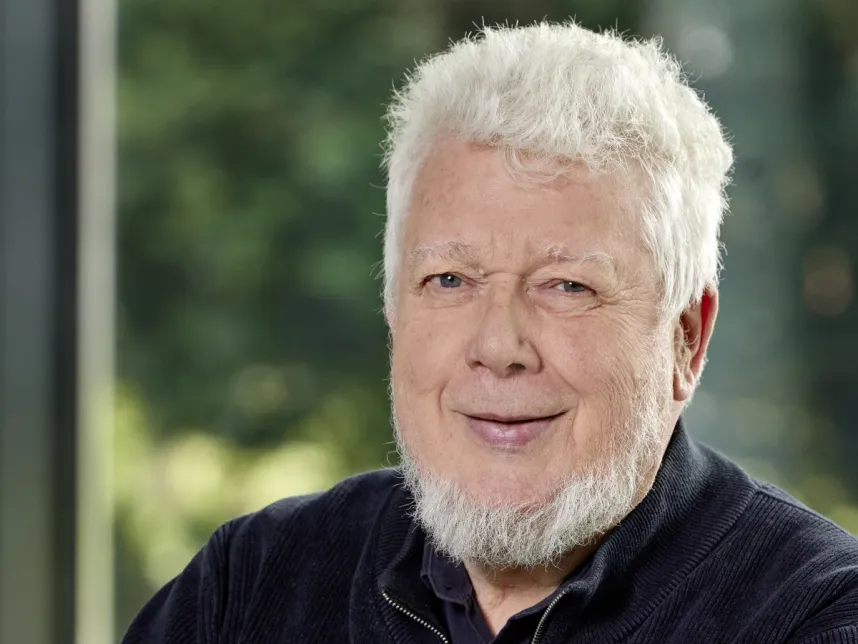Study shows: Social cohesion in Germany is eroding, but diversity remains welcome
Following previous surveys in 2017 and 2020, a team at Constructor University in Bremen surrounding Prof. Dr. Klaus Boehnke and working for the Bertelsmann Stiftung has published research on social cohesion in Germany. Results suggest that the COVID-19 pandemic seems to have weakened solidarity, says Boehnke, Professor of Social Science Methodology, in our interview.
Prof. Boehnke, you have been researching social cohesion for more than a decade. What changes have you noticed over this time?
Boehnke: Crises like the war in Ukraine and inflation, but especially the pandemic, have left their mark. Overall, the index of social cohesion* fell by nine points compared to 2020. This is significant. However, in parallel, my team has been running a continued comparison between countries in Europe, which shows that Germany, despite the challenges, remains in the top 25% of countries across Europe. A social cohesion score of 52 on a scale from 0 to 100 is still a solid result, a testament to the resilience and strength of our society.
Public perception is dominated by a feeling of increasing polarization and division. Is this supported by your data?
Boehnke: The data reveal a diverse range of public opinion, reflecting at the same time the complexity of our society. There’s the group of the alienated, comprised of 13% of respondents, who overwhelmingly rate social cohesion as being very low. They feel disconnected, about 35% of people within this group would vote for the AfD. On the other hand, you have 28 percent of respondents in the group of the integrated. They perceive social cohesion as intact. They are satisfied with democracy and trust politicians and the media. Between these groups, you have the group of the disappointed, made up of 27% of respondents, and the partially integrated, representing 32%. This diversity of perspectives underscores the need for a nuanced understanding of our society.
Which findings of the study surprised you?
Boehnke: One dimension of cohesion, part of the social relationships domain, is the acceptance of diversity. Although openness to diversity is declining in Germany, and I want to stress this—this dimension is still scoring the highest in our findings. Diversity remains welcome.
Your study also covers the different regions of Germany. The better the economic situation and the smaller the economic disparity, the more pronounced social cohesion. Why is this the case—and shouldn’t it be the other way around?
Boehnke: I am often asked this question in the eastern parts of Germany, where, supposedly, social cohesion used to be much higher. Still, it’s lower today than in Western Germany. My explanation is that where there are fewer resources to distribute, togetherness becomes challenging.
And what is the state of social cohesion in Bremen?
Boehnke: Bremen was included in our study, but the number of interviewees was proportional to the number of occupants of each federal state. This means that in Bremen there were too few study participants to reach reliable conclusions. For this reason, the results for Bremen are not featured in our report. If you take a look at the Bremen data anyway, it looks like the decline of social cohesion is more pronounced than in other states.
Social cohesion helps deal with crises and transformations. How can it be promoted?
Boehnke: For example, and especially on a local level, through neighborhood initiatives. Through COVID, many people became more lonely. In general, reducing disparity in living standards and economic power helps to support social cohesion.
*Social cohesion consists of nine individual dimensions across three areas: social relationships, connection to community, and orientation towards public welfare. In October 2023, 5004 study participants were interviewed across Germany.
Link to the study (in German):
Gesellschaftlicher Zusammenhalt in Deutschland 2023. Perspektiven auf das Miteinander in herausfordernden Zeiten.
Published by the Bertelsmann Stiftung. Authors: Prof. Dr. Klaus Boehnke, Dr. Georgi Dragolov, Dr. Regina Arant (all Constructor University Bremen), Dr. Kai Unzicker (Bertelsmann Stiftung)
Questions answered by:
Prof. Klaus Boehnke | Professor of Social Science Methodology
kboehnke@constructor.university | Tel.: +49 421 200-3401
